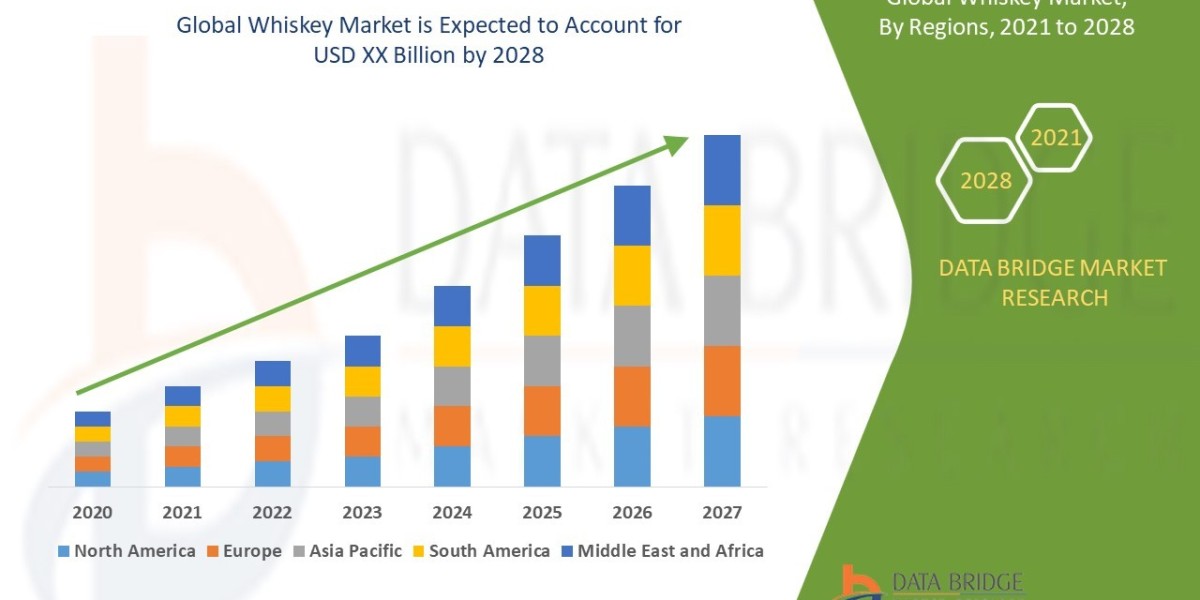The ubiquitous smartphone, once a mere communication device, has evolved into a personal digital assistant, a shopping mall, a fitness coach, and an entertainment hub, all encapsulated within a sleek interface. Billions of users worldwide navigate complex digital ecosystems daily, driven by the promise of convenience and instant access. However, as the mobile app market matures, the demand for truly intuitive, personalized, and proactive experiences has intensified. Generic, one-size-fits-all approaches are no longer sufficient to capture and retain user attention. This escalating demand has paved the way for a revolutionary force: AI agents.
AI agents, far more sophisticated than simple chatbots, are intelligent systems designed to learn from user behavior, anticipate needs, and perform actions autonomously or semi-autonomously within an application. They are fundamentally reshaping the entire mobile app user journey, transforming it from a series of reactive interactions into a seamless, predictive, and hyper-personalized experience. This paradigm shift is not just a technological upgrade; it represents a profound redefinition of how users interact with their digital tools, demanding a new level of expertise and innovation from Mobile App Development USA agencies and beyond.
Traditionally, the mobile app user journey followed a fairly linear path: acquisition, onboarding, engagement, retention, and eventually, either loyalty or churn. Each stage often required significant user effort – searching, navigating menus, inputting data, and manually seeking support. The experience was largely reactive, with the app responding only when explicitly prompted. While effective to a degree, this model often led to friction, user fatigue, and missed opportunities for deeper engagement. AI agents are dismantling these traditional barriers, creating a more fluid, intelligent, and valuable interaction model.
Reshaping the User Journey: A Stage-by-Stage Transformation
1. Discovery & Acquisition: From Generic Ads to Intelligent Recommendations
The initial phase of the user journey, discovery and acquisition, is where AI agents begin their transformative work. In the past, this was dominated by broad app store optimization (ASO) and targeted advertising based on demographics or broad interests. While still relevant, AI agents are injecting a new layer of intelligence.
Personalized App Recommendations: AI algorithms analyze a user's app usage patterns, search history, device settings, and even real-world behavior (with consent) to suggest new apps that genuinely align with their lifestyle and needs. This moves beyond simple category-based suggestions to truly intelligent matching. For instance, an AI agent might recommend a meditation app to a user whose sleep tracker data indicates stress, or a budgeting app to someone frequently checking financial news.
Hyper-Targeted Advertising: AI agents empower advertising platforms to create incredibly granular user profiles, enabling advertisers to reach potential users with unprecedented precision. This means ads for a fitness app might only appear to users who have recently searched for healthy recipes or visited a gym. This reduces ad waste and increases the likelihood of a relevant download.
Conversational Acquisition: Imagine an AI agent within a device's native assistant that, upon hearing a user express a need (e.g., "I need a better way to manage my tasks"), proactively suggests a highly-rated productivity app and even offers to facilitate its download.
Mobile App Development USA agencies are at the forefront of this shift, investing heavily in data science and machine learning capabilities to understand user acquisition funnels with greater nuance. They are leveraging AI-powered market intelligence to identify unmet needs and design apps that are not just functional but inherently discoverable and appealing to highly specific user segments. This data-driven approach allows them to optimize ASO strategies and build more effective acquisition campaigns, ensuring their developed apps reach the right audience from the outset.
2. Onboarding & Personalization: Instant Relevance, Guided Exploration
Once an app is downloaded, the onboarding experience is critical for retention. Traditionally, this involved static tutorials, manual preference settings, and generic walkthroughs. AI agents are revolutionizing this crucial phase by making it dynamic, adaptive, and instantly relevant.
Adaptive Onboarding Flows: Instead of a fixed sequence, AI agents analyze initial user interactions and inferred preferences to tailor the onboarding experience in real-time. For a new user in a fitness app, the AI might immediately identify their primary goal (e.g., weight loss, marathon training) based on a few quick questions or even device data, then customize the tutorial to highlight relevant features first.
Immediate Personalization: AI agents can infer user preferences from minimal input, setting up initial app configurations, content feeds, or notification settings. This eliminates tedious manual setup, making the app feel "smart" and tailored from the very first interaction.
Proactive Feature Discovery: Rather than overwhelming users with all features at once, AI agents can intelligently introduce functionalities as they become relevant to the user's journey. For example, after a user consistently performs a basic task, the AI might suggest a more advanced feature that automates or enhances that task, guiding them deeper into the app's capabilities.
Mobile App Development USA firms are leading the charge in designing AI-driven onboarding experiences that prioritize user delight and immediate value. They are employing sophisticated natural language processing (NLP) for conversational onboarding, allowing users to express their needs naturally. The focus is on creating a "smart start" that minimizes friction and maximizes the perceived relevance of the app, setting the stage for sustained engagement.
3. Core Engagement & Task Completion: Predictive Assistance & Seamless Automation
This is where AI agents truly shine, transforming everyday app usage from a series of manual steps into a highly efficient and often invisible dance between user and intelligent system.
Predictive Assistance: AI agents learn user habits and context to anticipate their next action. In a ride-sharing app, it might suggest a common destination based on the time of day. In a productivity app, it could auto-fill meeting details based on calendar entries. This reduces cognitive load and speeds up task completion.
Intelligent Search & Discovery: Moving beyond keyword searches, AI agents enable natural language queries, visual search (e.g., taking a photo of an item to find it online), and context-aware recommendations. They can understand intent, even with ambiguous input, and surface highly relevant results.
Proactive Problem Solving: If an AI agent detects a user struggling with a particular feature (e.g., repeatedly tapping the wrong button, spending too long on a specific screen), it can proactively offer contextual help, a mini-tutorial, or even directly guide them through the process.
Personalized Content Delivery: From news feeds that adapt to reading habits to e-commerce product recommendations that evolve with browsing patterns, AI agents ensure that the content presented to the user is always fresh, relevant, and engaging, fostering deeper interaction.
Smart Automation: AI agents can automate routine tasks based on learned behavior or predefined triggers. A banking app might suggest paying a recurring bill based on past patterns, or a smart home app could suggest adjusting thermostat settings based on weather forecasts and user preferences.
Mobile App Development USA agencies are at the forefront of integrating these advanced AI capabilities into core app functionalities. They are building complex AI models that process vast amounts of user data (with stringent privacy controls) to power these predictive and proactive features. The emphasis is on creating a "flow state" for the user, where the app anticipates needs and seamlessly assists, making the interaction feel effortless and intuitive.
4. Support & Problem Resolution: Instant, Contextual Help
Customer support is often a reactive and frustrating part of the user journey. AI agents are transforming it into a proactive, efficient, and personalized experience.
Intelligent Chatbots & Virtual Assistants: These AI agents can handle a vast array of user queries, providing instant answers to FAQs, guiding users through troubleshooting steps, and even processing simple requests (e.g., changing an address, checking order status). They reduce the burden on human support teams and provide 24/7 assistance.
Contextual Help: If a user is struggling on a specific screen, an AI agent can pop up with relevant help articles or direct links to support, rather than forcing the user to navigate a general help section.
Proactive Issue Detection: AI agents can monitor app usage patterns for signs of user frustration or common errors. If a user repeatedly fails to complete a transaction, the AI might proactively offer assistance or flag the issue for human intervention.
Mobile App Development USA firms are investing in sophisticated NLP and machine learning models to power these intelligent support agents. They are designing conversational interfaces that feel natural and empathetic, ensuring that AI-driven support enhances, rather than detracts from, the overall customer experience. This leads to higher user satisfaction and a more efficient support ecosystem.
5. Retention & Loyalty: Anticipating Churn, Fostering Connection
The ultimate goal of any app is to retain users and build loyalty. AI agents provide powerful tools for achieving this by understanding individual user lifecycles and predicting potential churn.
Hyper-Personalized Re-engagement: If an AI agent detects a user's activity declining, it can trigger highly personalized re-engagement campaigns – a reminder about a favorite product on sale, a personalized content recommendation, or a notification about a new feature tailored to their past interests.
Predictive Churn Analysis: AI models analyze user behavior patterns to identify users at risk of churning before they leave. This allows the app to intervene with targeted incentives, personalized offers, or proactive support to win them back.
Dynamic Loyalty Rewards: Instead of static loyalty programs, AI agents can dynamically offer rewards or incentives based on individual user engagement, purchase history, or milestones achieved, making the loyalty program feel more responsive and valuable.
Conversational Feedback Collection: AI agents can engage users in natural conversations to gather feedback, understand pain points, and collect suggestions for improvement, making users feel valued and heard.
Mobile App Development USA agencies are leveraging advanced analytics and predictive modeling to create sophisticated retention strategies. They are helping businesses move from reactive churn management to proactive loyalty building, using AI to understand the subtle signals of user sentiment and behavior. This focus on long-term value creation is a hallmark of leading agencies in the US market.
Key Enablers and Considerations for AI Agent Integration
The successful integration of AI agents into mobile app user journeys relies on several critical factors:
Data is the Lifeblood: AI agents thrive on data. Vast quantities of high-quality, relevant user data are essential for training robust AI models that can accurately predict, personalize, and automate. This necessitates robust data collection, storage, and processing infrastructure, all while adhering to strict privacy regulations.
Ethical AI and Trust: As AI agents become more pervasive and influential, ethical considerations are paramount. Mobile App Development USA agencies are increasingly focusing on transparent AI, ensuring users understand how their data is used and how AI decisions are made. Addressing biases in AI models, safeguarding user privacy, and providing users with control over their data are crucial for building and maintaining trust.
Hybrid Intelligence: AI agents are not meant to replace human interaction entirely but rather to augment it. The most effective user journeys combine the efficiency and scalability of AI with the empathy and nuanced understanding of human support when needed. Agencies are designing seamless handoffs between AI and human agents.
Specialized Technical Expertise: Integrating AI agents requires deep expertise in machine learning, natural language processing, data engineering, and cloud infrastructure. Agencies in the Mobile App Development USA market are actively investing in these specialized skill sets, building teams of AI/ML engineers, data scientists, and AI ethicists to deliver cutting-edge solutions.
Impact on Mobile App Development Agencies in the USA
The rise of AI agents is profoundly reshaping the role of Mobile App Development USA agencies. They are no longer just coding apps; they are designing intelligent systems that learn, adapt, and proactively interact with users. This shift demands:
Evolving Skill Sets: A significant investment in acquiring and nurturing talent in AI/ML, data science, and advanced analytics.
New Development Methodologies: A move towards more iterative, data-centric, and experimental development cycles, with continuous model training and deployment.
Increased Project Complexity: AI integration adds layers of complexity, requiring more sophisticated architecture, data pipelines, and testing protocols, potentially leading to higher initial development costs but also significantly higher potential ROI.
Strategic Advisory Role: Agencies are becoming strategic advisors, helping clients understand not just how to build AI into their apps, but why and where it will deliver the most value to their user journeys and business objectives.
Competitive Differentiation: Agencies that master AI agent integration will gain a significant competitive advantage, positioning themselves as leaders in delivering next-generation mobile experiences.
Challenges and Future Outlook
Despite the immense potential, the integration of AI agents is not without its challenges. Data privacy regulations are constantly evolving, requiring agencies to remain agile and compliant. Building user trust in AI-driven interactions is an ongoing process, demanding transparency and control. Computational demands for complex AI models can be significant, impacting device performance if not optimized. Ensuring seamless integration without overwhelming or confusing users remains a delicate balance.
Looking ahead, the future of mobile app user journeys will be characterized by even more sophisticated AI agents. We can anticipate:
Ambient Intelligence: AI agents that seamlessly operate in the background, anticipating needs before they are explicitly articulated, creating truly invisible and effortless interactions.
Multimodal Interactions: More natural interactions combining voice, gestures, visual cues, and even biometric data for richer, more intuitive control.
Personalized Digital Twins: AI agents that create a highly accurate digital representation of a user's preferences, habits, and needs, allowing for hyper-personalized experiences across all digital touchpoints.
In conclusion, AI agents are not merely an add-on; they are fundamentally redefining the mobile app user journey, making it more intelligent, personalized, proactive, and seamless. From the moment of discovery to long-term loyalty, AI is empowering apps to anticipate, assist, and delight users in unprecedented ways. The Mobile App Development USA sector, with its robust innovation ecosystem and deep technical talent, is playing a pivotal role in driving this transformation, shaping a future where mobile apps are not just tools, but truly intelligent companions that understand and enhance our digital lives. The journey has only just begun, and the possibilities are as vast as the data that fuels them.








